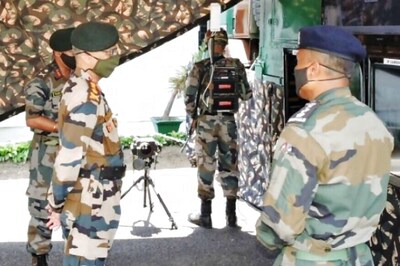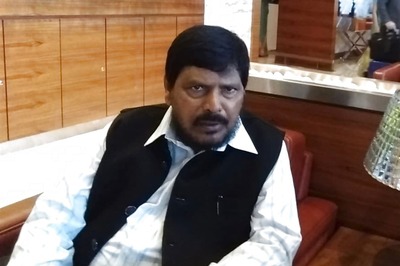
views
New Delhi: A 25-paise postcard can set the constitutional law in motion — the man who evolved perhaps the first principle of bringing justice to one’s doorstep is no more. Justice Bhagwati opened the doors of the Supreme Court to the lowliest of the low.
Former Chief Justice of India P N Bhagwati, 95, passed away on Thursday. But what he has left behind is an indelible legacy of public interest litigation (PIL), which remains till date a common man’s best shot at securing justice before a constitutional court.
Bhagwati attributed it to a chance encounter with Mahatma Gandhi in August 1942 when the Quit India movement was launched that guided him to become a lawyer and a judge. He spent around a month in jail during the freedom struggle and later joined the law college, following the footprints of his father who was a lawyer in Mumbai.
About his decision to become a judge, Justice Bhagwati used to say that if good people do not join the bench, then the lawyers should be ready to argue before bad judges. He became a judge in the Gujarat High Court in 1960, and was elevated to the Supreme Court in 1973.
Justice Bhagwati felt strongly for protection of human rights, which, he said, was not possible unless access to justice for all became a reality. The judge found this recourse in PILs, and said that this could prove to be the glory of the Indian judicial system if used cautiously.
According to Justice Bhagwati, PILs will transform the legal landscape in India and will go a long way to demonstrate that law is not necessarily a class weapon used by the rich to oppress the poor by the simple devise of making justice too expensive for them.
Justice Bhagwati then introduced the Postcard revolution of judicial activism. People could send in their petitions and complaints on a postcard, and the apex court would act on it. Any citizen from any part of India or any social action group could now write directly to the Supreme Court, seeking legal remedy in cases where public interest was at stake.
This instrument of legal empowerment left a deep imprint on the Indian legal process and on the processes of social change and political empowerment in the country, where, Justice Bhagwati regretted, socially and economically disadvantaged population was still struggling to get its voice heard. The top court, in this era of judicial activism, held that even a third person could invoke a constitutional court’s jurisdiction for dispensing justice to the voiceless and the person wronged.
Justice Bhagwati has left behind a body of spirited judgments, laying down precedents in cases of life and liberty.
But the illustrious 25 year-career as a judge had a grey spot, and a man like him, had the courage to acknowledge his fallacy. When it came to the crunch, Justice Bhagwati seemed to buckle down to the executive.
He was one of the four judges on the bench, which upheld in April 1976 the right of Indira Gandhi’s government to suspend all fundamental rights during the Emergency. The majority ruling maintained that the government could even suspend the right to life and liberty of an individual, and that an individual’s right to approach a constitutional court against his detention was also put on hold during the Emergency. The lone dissenter was Justice H R Khanna.
For all his liberal conscience, this judgment was certainly a digression from Bhagwati’s career trajectory. 35 years later, Justice Bhagwati felt apologetic for this verdict. In 2011, speaking to Mylaw.net, the judge described this as “an act of weakness,” and added “it was against my conscience”.
This was perhaps the greatest irony in the Indian judicial history that the man who brought public suits to this country was also the one who ruled in favour of suspending even the right to life during the Emergency. But perhaps Justice Bhagwati’s most enduring contribution would always be the firm footing he gave to public interest litigation, making access to justice a reality for all.




















Comments
0 comment